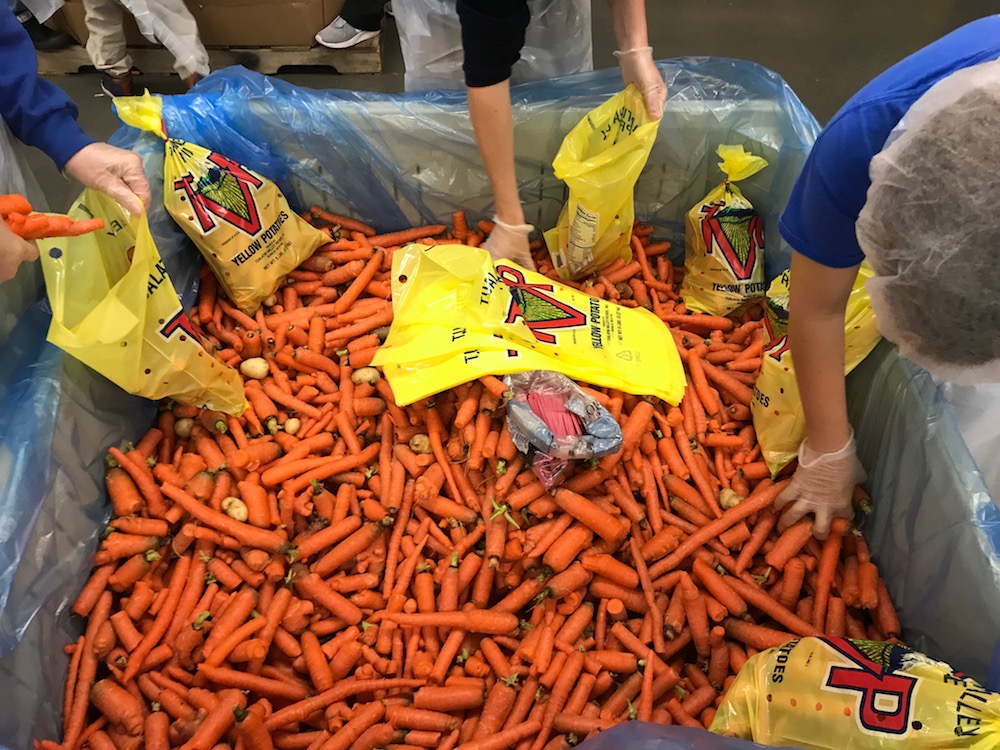A couple of years ago, a friend asked me to help teach one of her English classes at an alternative high school. As an editor in the publishing field, I was excited to come to her classroom as a successful representative of the arts. After class, one of the students came up to me and my friend to apologize for not having her homework. She couldn’t find her homework, she said, because she lived in a closet in the bedroom of a family friend, and the young boys she shared the room with were always taking her things. My friend later explained to me that the young girl had just moved here in order to escape living on the streets of Los Angeles.
As of 2015, Oregon school districts served 20,524 homeless youth, and 4,177 people are homeless on any given evening in Multnomah County alone. And we are on an upward trend. Homelessness is everywhere we turn—all along the I-5, all along the West Coast. With booming economies, the rental markets have succeeded them, leaving behind Oregon’s historically working class and producing a severe housing shortage with rock-bottom vacancy rates and a growing divide between the wants and needs of its wealthiest and poorest residents. We are experiencing a refugee crisis in our own country.
When I came to work for Ooligan Press, we were in the midst of working on a book called Sleeping in My Jeans, a story about a young girl who ends up homeless alongside her mother and young sister due to a domestic violence situation. I couldn’t help but think back to the young girl who lived her life out of the closet. No family, no bed, no home. In our research, we found that there is a shocking lack of literature for young people that tackles the growing yet continuously silent issue that is youth homelessness. One in thirty children experience homelessness in the US, and Oregon ranks first in youth and teen homelessness in the US. We were sitting on an important story, and we knew it. And as we watched the homelessness statistics rise and listened to the stories, we began to wonder: What can we—as publishers and community members—do about this?
It’s easy to ignore the stories, ignore the faces, ignore the encampments. But having this story—the story of a girl named Mattie who struggles to make it through each and every day, afraid of what might lurk outside the beat-up station wagon she calls home, who, in a moment of deafening vulnerability, works to prove to herself that she can be resilient—made it an issue we could no longer ignore. It felt too real. And we knew it was our responsibility to work with our community to foster discourse.
By publishing stories like this one, we can give voices to the hundreds of thousands that lack one. We can help teach young readers empathy through fiction and remind readers that there are stories behind the statistics—real people, real faces—in the hope that we can encourage action.
In response, Ooligan Press students have been dedicating their time to volunteering with local charities. We have been hard at work sorting carrots and harvesting food for local families at the Oregon Food Bank and preparing books for distribution for the Children’s Book Bank. We’re also working alongside community partners to host charitable events that benefit local initiatives. From November 11th–18th, we are hosting a children’s book drive alongside local bookstores to benefit the Children’s Book Bank, a local charity working to close the book gap and promote literacy in low-income communities. For the book’s launch event, we’re hosting a donation drive and raffle in which the proceeds go to another local charity, Food for Families, which operates a mobile food pantry in Gresham, just east of Portland.
Portland is home to a bustling literary scene and to a strong number of well-respected independent publishing houses. We thrive due to the community that supports us; we wouldn’t survive without them. Let’s face it, it’s hard to commit that kind of time or money as a small publisher. For the most part, we don’t have any. Ooligan is a student-run, non-profit trade publisher; in all honesty, we don’t have much of a budget. But as a small and independent publisher, we are representatives of our community, and as such, we have a responsibility to be symbols of community commitment. As small publishers, it’s difficult to take on financial onus, but it’s time to start thinking outside the box. Yes, we can give back to our community by publishing material, by promoting reading, and by working with others to host free reading events. This is all important work. But we have to ask ourselves, as conscientious members of society, how can we do more? By setting aside a week, a day, even just a few hours, we can make a difference. We can give even a few hours to doing something, to getting dirty, to doing the hard work. It’s easy to donate money, but what’s more valuable than our time?
We need to be setting an example for future publishers—to strive for imperative community-building values that promote action and advocacy. If we’re not giving back to the communities that allow us to thrive, exciting children about books, helping provide them with the resources they need, promoting literacy, and, more importantly, giving them characters they can connect to on a deep and personal level and live their lives by—then what are we doing?

